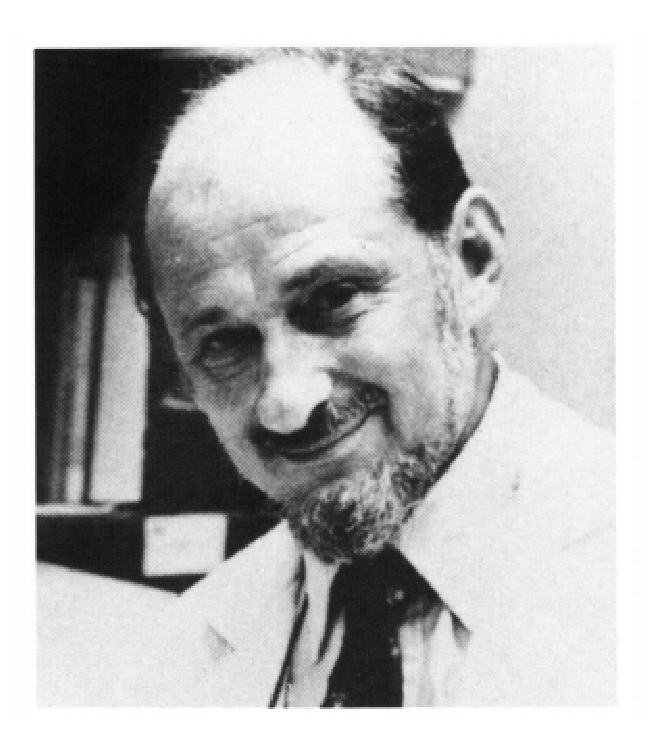
Norman Geschwind
Norman Geschwind, died suddenly by a heart attack and cardiac arrest on November 4th, 1984 at the age of 58. He was born in New York City on January 8, 1926. Both his parents were born in an area that was, before World War I, a portion of the Austro-Hungarian empire but is now part of southern Poland, and both came to the United States as children. He attended elementary and high school in Brooklyn, New York, graduating in 1942. He interrupted his college studies in 1944 to serve in the infantry during World War II. In 1947 he received an AB degree, magna cum laude, and in 1951 an MD degree, cum laude, both from Harvard Medical School.
He continued his studies at London’s National Hospital as a Moseley Traveling Fellow from 1952 to 1953. He returned to America and worked as United States Public Health Service fellow from 1953 to 1955. Dr. Geschwind became neurology chief resident at Boston City Hospital in 1955. In 1967 he accepted the James Jackson Putnam Chair at Harvard Medical School and became Director of the Neurological Unit at Boston City Hospital. Six years later, he moved to the Beth Israel Hospital where he founded the present Department of Neurology. In addition to his professorship at Harvard Medical School, he was also appointed Professor of Psychology at the Massachusetts Institute of Technology in 1978.
Dr. Geschwind continued to foster the development of cytoarchitectonics with Galaburda and Mesulam. the study of cerebral mechanisms of emotions, the neuropsychology of temporal lobe epilepsy and the biology of left handedness. He continued to maintain collaboration with the aphasia research center at the VA under the direction of Harold Goodglass. His latest work, just before his death, was directed towards the relationship of left handedness and auto-immune disease. Another recent interest has been the behavioural changes associated with temporal lobe epilepsy and the limbic system. In recent talks he expressed the view that even the largest group of patients with disturbance of behaviour which are presently considered “functional” psychosis and occupy a vast number of mental hospital beds have, in fact, behavioural disturbances which can be related to brain dysfunction.
He was active in many professional societies and on many editorial boards. He served as President of the Boston Society of Neurology and Psychiatry, International Neuropsychological Society, and of the American Association of University Professors of Neurology. When, in 1978, the National Institute of Neurological and Communicative Diseases and Stroke decided to convene a panel to formulate long-term national research strategies on the neurological foundations of behavior, he was appointed chairman. He belonged to the American Neurological Association, the American Academy of Neurology, the Academy of Aphasia, and the Orton Society. Honorary memberships included the French Society of Neurology, the Brazilian Academy of Neurology, and the Royal Society of Medicine of Belgium. He received honorary degrees from Northwestern University in Chicago (DSc), Claude Bernard University in Lyon (Doctor honoris causa), and the Royal College of Physicians of Glasgow.
Dr. Geschwind is survived by his wife, Patricia; two daughters, Naomi Geschwind of Manhattan and Second Lieut. Claudia Geschwind, who is stationed in West Germany, and a son, David, of Brookline.
